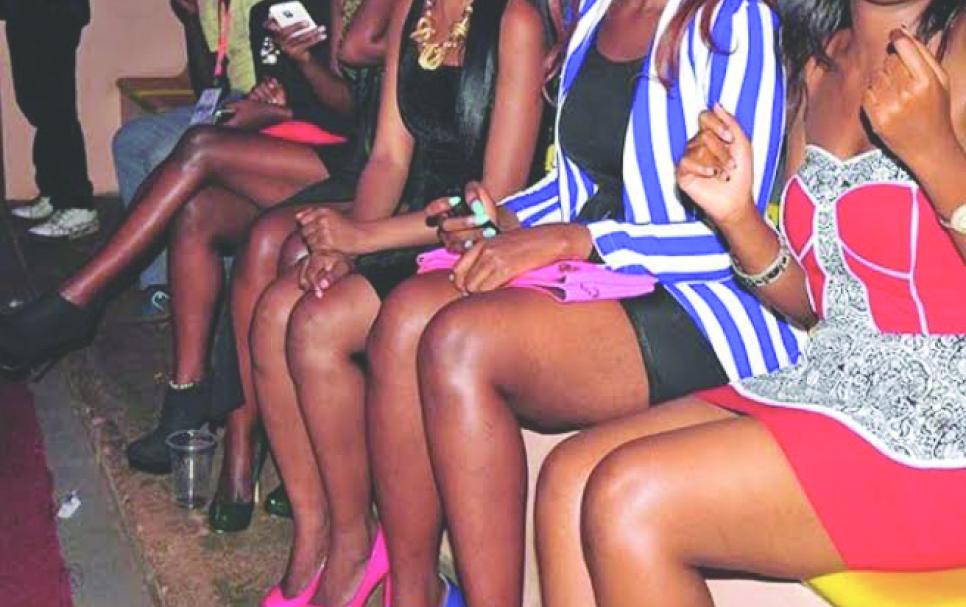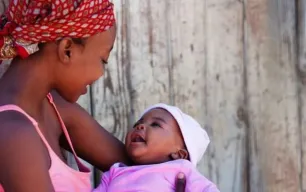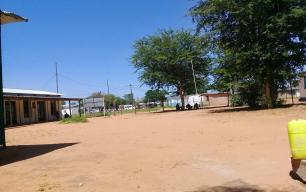On the edge of survival: Windhoek’s red-light district

By Patience Makwele
As the sun deeps below the horizon and the street lights flicker to life, in Windhoek a small group of women line up on the corners of Checkers (Mandume Ndemufayo Avenue) every night. On busy days like month end they stand as a group of more than five whereas on normal days it is sometimes one or two individuals spotted in the chilly weather. With bold lipstick, tired eyes covered in layers of mascara or fake eye lashes, heavy layers of makeup blended with resilience stitched into their movements, they stand wearing almost nothing but long coats paired with nothing but a thin layer of lingerie, they stand proud and fearless waiting for clients, for the night to unfold and for a little money to carry them for tomorrow. This is where they stand every evening.
“I never dreamed of this life, never imagined one day I’ll stand here,” said Toini (not her real name), a 29-year-old mother of two. “But when you have children and a family who rely solely on you, you are left with no choice but to do whatever you have to endure for their sake.”
Toini says she has been on “The plug” for four years now, once a kindergarten teacher at a local daycare, she lost her job during the pandemic. With only a certificate in child care and no education entry points to further her studies, she says sex work became a painful but necessary option. “I had a job when I first moved to Windhoek but then Covid-19 came and I lost it, I tried going back but my position was given to someone with better qualifications. I tried applying and volunteering at other daycares but I was only getting N$1000.00 or less every month,” she recalled. “I have tried domestic work but it paid very little. Everything changed when a friend introduced me to the street, she called it the ‘The Plug’ and here, in one night if I’m lucky I make N$2000.00,” she said softly.
Next to her, Stella, 24, chuckled bitterly. “We are not here because we want to open our legs. We are here because no one opened the door for us.”
Many of the women who stand at every corner are single mothers. Some are survivors of abuse, some are from neighboring countries who came to the land of the brave based on promises of a better life, others fled broken homes or were orphaned too young to ever finish school. Their stories differ, however the pattern of rejection and poverty is constant. And yet beneath the shared struggle, is a deep sisterhood an unspoken rule of looking out for one another when police patrols drive or when a client turns violent.
“We are scared every night,” said Stella. “Some men refuse condoms, saying ‘I want it raw if you want full payment.’ Some men pull out knives and rape us at knife/gun point. Some take us and never pay. When we try opening up to the police, they treat us like criminals.”
Although sex work remains illegal in Namibia, enforcement is uneven. The women claim they are often harassed or asked for sexual favors by officers in uniform in exchange of being “let off.”
“You can’t even report rape,” said Toini. “They just laugh and say ‘Ashike you’re a prostitute, what did you expect? Do you really think anyone is going to believe a w%%re that’s available for the public?”
Society looks at them with different, disgusted, judgmental and gross facial expressions, they are called names and seen as worthless beings. They have lost their voices, stripped off their rights and have learned to turn insults into uniform. Despite the hardship, many hold on to hope. Toini wishes to one day go back to school and upgrade her points so that she can earn a lower primary teaching qualification. Stella dreams of becoming a Human Rights Lawyer. Others want to leave the streets and be seen for more than what they sell.
“Every woman here had a dream before this life,” Toini added, her eyes glossy. “We still do.”
As the night thickens, headlights flash and a White Land Cruiser pulls up. One of the women re-adjusts the hem of her coat, revealing a little bit of her lingerie, leans on the window and the others step back. In a blink of an eye, a transaction is complete, in a silent manner but understood, the scene unfolds like clockwork.
They are business women in the shadows of the city.
Survivors on the edge of legality and every evening, when nights get cold, they stand across the streets and parking lots of Checkers, they take their places again, not out of choice but out of the human right to survive.
Social workers argue that the presence of women in street-based sex work reflects deeper gaps in Namibia’s social safety net. “What we see here is not just a story of women selling sex, it’s a story of systemic failure,” said former DREAMS Social Worker, Agness Lokato. “Most of these women are mothers trying to put food on the table. They should not be punished for poverty.”
Health experts warn that the criminalisation of sex work creates dangerous conditions. According to one HIV outreach officer, “Criminalisation pushes sex workers underground. It makes it difficult for them to negotiate condom use, access health care or report abuse. This is not only a women’s rights issue but also a public health issue.”
Legal voices point to the urgent need for reform. Human rights lawyer Rebecca Mutonga noted that Namibia lags behind some countries in recognising the rights of sex workers. “Decriminalisation would not mean endorsing sex work but acknowledging sex workers’ right to safety, dignity and justice. Right now the law leaves them unprotected and that vacuum allows exploitation to thrive,” she emphasized.
- 613 views





Comments